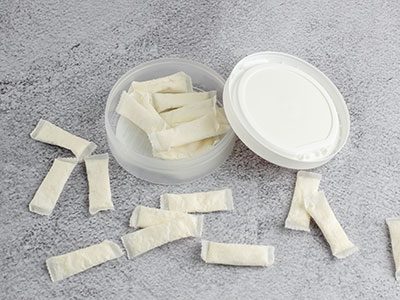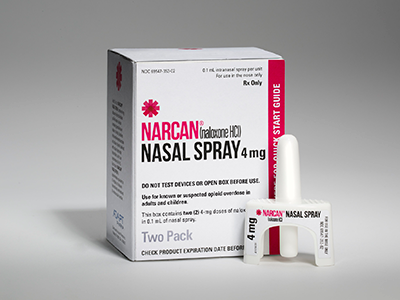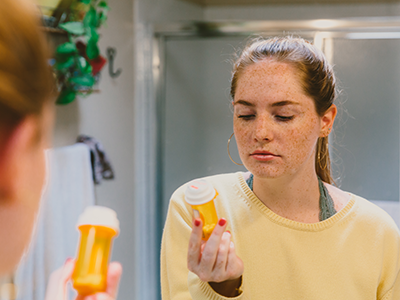As parents and caregivers, we juggle a million worries. From social media pressures to academic anxieties, the teenage years are a whirlwind. But lately, a new concern has crept onto the scene: Zyn. These discreet nicotine pouches are becoming increasingly popular among teens, and their popularity is a cause for serious alarm.
What is Zyn?
Zyn is a pillow-like pouch that is placed between the user’s gum and upper lip. It contains flavoring and nicotine salts which absorb into the bloodstream through tissues in the mouth. This smokeless nicotine pouch product was initially marketed to help adult smokers quit and lower their health risks but has demonstrated concerning popularity among teens.
The Centers for Disease Control and Prevention (CDC) reports that in 2023, “1 of every 100 high school students reported using nicotine pouches in the past 30 days.” Further, the Food and Drug Administration (FDA) announced on April 4, 2024, “the issuance of 119 warning letters to, and the filing of 41 civil money penalty complaints against, brick and mortar retailers that engaged in the underage (under 21) sale of various flavors of Zyn nicotine pouches between October 2023 and February 2024.” These statistics show the importance of not letting this illusive product fly under the radar of the caretakers of today’s teens.
How is Zyn different from other nicotine products?
Compared to other smokeless oral nicotine replacement products used to help quit smoking, Zyn contains higher doses of nicotine that are absorbed faster. Zyn comes in options of 3mg to 6mg and is meant to be kept in the mouth for up to 1 hour. Zyn is not FDA-approved to help quit smoking. The cost of one package of Zyn is about $4.50.
Why is Zyn popular?
With schools continuing to crack down on vaping and smoking, many teens are struggling with nicotine withdrawal and turn to Zyn, which provides an easier means to alleviate withdrawal symptoms but also to evade detection and punishment compared to the clouds of vapor or smoke from vapes and cigarettes. A National Youth Tobacco Survey found that 41.9% of adolescents reported strong cravings for nicotine: a classic symptom of nicotine dependence.
Zyn’s appealing flavors such as mint and citrus, lower health risks than cigarettes and discreet nature as a smokeless spitless product also make it extremely attractive to customers, especially teens.
However, the appeal of Zyn to teens goes beyond its qualities as a product to its marketing and promotion on social media. Tobacco advertising experts are concerned that Zyn is using alarming similar marketing tactics to those used by e-cigarette makers such as Juul. There is even a term — Zynfluencers — for people who post about the product on social media. Further, hashtag #ZYN has accumulated more than 700 million views on TikTok alone.
This strong presence on social media has caught the attention of Gen Z, many of whom are under 18. With social media also having increased the prevalence of body image issues and unhealthy eating practices in the younger generation, it is not shocking the product garners appeal due to its appetite suppressant qualities. Zyn is being called the “Gas Station Ozempic” and becoming known as a way to help lose weight cheap and fast.
What are the health risks associated with nicotine use in teens?
Zyn is a relatively new product, so we do not know the long-term consequences of using it. No data on the chemical characteristics of Zyn has been published. We do know a substantial amount about its risks as an oral nicotine product, especially for teens. Experts opine that the nicotine found in Zyn pouches is highly addictive and poses a greater risk to cardiovascular disease in those not already using nicotine products.
Nevertheless, regardless of if a Zyn user has used nicotine before, nicotine still poses cardiovascular risks. Nicotine increases heart rate, blood pressure and oxygen consumption of the heart. Nicotine then further stresses the heart by limiting blood flow to the muscles due to narrowing of the arteries. Long term nicotine consumption impairs liver function and contributes to fatty liver disease.
Nicotine has also been shown to negatively effect sleep, an area where teens are already struggling with the rise of screen time and social media. A 2023 study by the National Institutes of Health (NIH) demonstrated that nicotine has a significant impact on sleeping habits and conditions, causing poor sleep-quality, sleep apnea and insomnia. Additionally, the study links nicotine-induced lack of sleep to depression, diabetes, obesity and heart disease.
Nicotine is the chemical in tobacco products that is responsible for addiction. Nicotine addiction causes strong cravings, a tendency to continue nicotine/tobacco use because it becomes hard to stop, anxiety, sadness, irritability or trouble sleeping due to withdrawal. The cycle of dependence even expands beyond teens currently using nicotine and into their futures. Previous studies on teens using e-cigarettes have shown that they are more likely to start using regular cigarettes as they get older. This may be true for Zyn as well.
Zyn also poses risks to oral health. Dentists have raised concerns that when the product is held against the mouth tissues for prolonged periods of time it causes gum recession as the gum tissue surrounding the teeth wears away. The placement of the pouch can also cause localized plaque buildup over time resulting in cavities and tooth decay. Overall, it is clear nicotine use poses dangerous physical and mental health risks.
What are signs my teen might be using Zyn?
- Have you noticed something small and white in the upper part of your teen’s mouth? A Zyn pouch sits between the teeth and upper lip and can become slightly visible when talking.
- Have you noticed your teen carrying a round container that looks like a pack of mints such as the popular brand “Ice Breakers”? Zyn pouches come in packaging that resembles the well-known mint brand “Ice Breakers.” Zyn may be easily confused with harmless mints without this knowledge.
- Have you noticed your teen is less hungry than usual, is eating less food or has lost weight? This may suggest nicotine use as nicotine suppresses appetite and food intake. Also, Zyn is known for its appetite suppressant qualities.
- Have you noticed your teen demonstrates more mood swings, irritability agitation or anxiety? These are symptoms of nicotine addiction when one craves but cannot access nicotine and/or is going through nicotine withdrawal.
- Have you noticed your teen has been disappearing in a suspicious way or for a prolonged period of time? Another symptom of nicotine addiction is going out of one’s way to acquire nicotine products. Additionally, teens face more barriers attaining nicotine products making them more difficult and time consuming to obtain. This is true for any struggles a teen may be having with substances.
What should parents do?
Communication is key. With its increasing popularity, your teen has likely already heard of Zyn through peers and social media. By initiating a conversation with your teen about the risks of Zyn and other nicotine/tobacco products, you have an opportunity to get ahead of the trend. If you are upset, it is best to try to calm down before you begin so you can open the conversation in a non-threatening way. Teens can become defensive easily.
Some suggestions from experts on how to have this conversation include: “Approach the conversation with curiosity rather than accusation.” “Ask your teen what they know about Zyn and if they’ve encountered it at school or among friends.” Parents should not be afraid to ask questions; it is important to know what your teen is doing and who they are doing it with. Do your best to truly listen and seek to understand. Forcing your own agenda may push your teen away but if you meet them where they are you can navigate together. Prepare your teen for peer pressure and what they might say if a friend offers or encourages them to use Zyn or another product. Maintaining a dialogue around Zyn and other nicotine and tobacco products rather than having a one-time conversation is crucial.
Make your rules and stick to them. Set clear expectations around Zyn and other nicotine and tobacco products. Keep it consistent by establishing a nicotine/tobacco free home. Make sure the spaces where your teen spends a lot of time are nicotine/tobacco free by ensuring friends and family do not use Zyn or any other nicotine/tobacco products. Be a good example, although it is best to quit, if you smoke, vape or use Zyn at least do not do it around your children. Consistency and positive role models of a healthy lifestyle are crucial to supporting your teen. Clear expectations accompanied by maintaining an environment where your teen can feel safe to come to you for help are a great place to start.
If you discover your teen is using Zyn or other nicotine/tobacco products it is best when considering punishments to first have a conversation with the goal to help not to blame. While there should be consequences for certain behaviors, the delivery of these consequences needs to come from a calm, rational place. Taking a pause to give your teen a chance to open up can be beneficial and important for assessing next steps. Teenagers take time to articulate themselves, so parents need to give them space to say what they need to say without jumping all over them. You should also assess whether they have a nicotine addiction. Your child might want to stop but could be having a really hard time doing so. Validating their efforts and talking about options to help them work through the addiction can be more effective than demanding they stop.
If you are supporting your teen in quitting vaping, consider other options than Zyn. Quitting “cold turkey,” although very effective, can be difficult and can cause more severe symptoms of withdraw initially. If you are considering a product to help taper your teen off nicotine, consider other options than Zyn. Zyn has not been FDA approved as a product to quit smoking/vaping and many people report having to take steps to quit Zyn itself after starting. Whether or not your teen has desire to quit, if your teen has a nicotine addiction or you are concerned they do, your first step should be consulting their pediatrician or family doctor. They can help you assess the severity of the addiction and what options are available to help them quit.
Here is a link to a helpful mobile app that guides parents in discussions around various substances, including nicotine: Mobile Application | SAMHSA
 https://riseandshine.childrensnational.org/wp-content/uploads/2024/07/zyn-feature.jpg
300
400
Rise and Shine
https://riseandshine.childrensnational.org/wp-content/uploads/2017/11/childrens_riseandshine_logo.jpg
Rise and Shine2024-07-17 13:37:372024-07-17 13:44:16The rise of Zyn: Pouches full of problems
https://riseandshine.childrensnational.org/wp-content/uploads/2024/07/zyn-feature.jpg
300
400
Rise and Shine
https://riseandshine.childrensnational.org/wp-content/uploads/2017/11/childrens_riseandshine_logo.jpg
Rise and Shine2024-07-17 13:37:372024-07-17 13:44:16The rise of Zyn: Pouches full of problems











Leave a Comment
Want to join the discussion?Feel free to contribute!